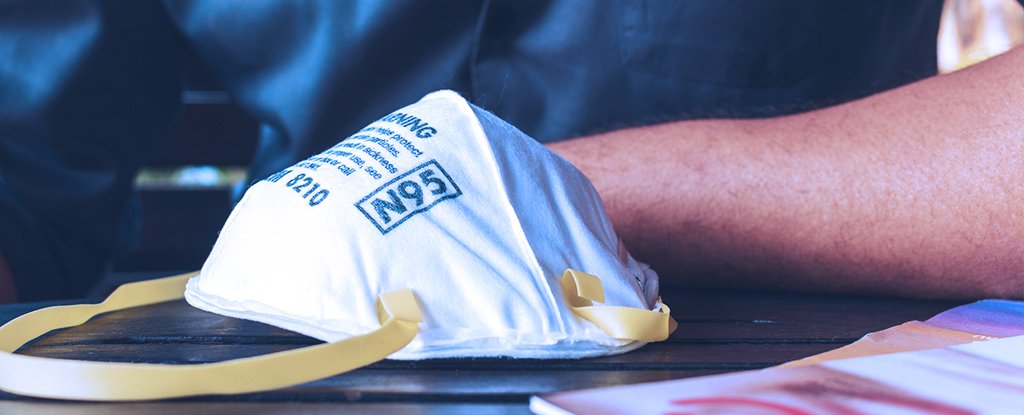
With the Omicron variant's increased virulence, some experts are urging us to upgrade cloth and surgical masks to the more protective N95s, but supply remains a concern. The advice has been held back because of the limited supply, but a new study suggests N95s can be safely decontaminated many times in a clinical setting.
The study was done to see if the respirators would degrade after being exposed to UV light or hydrogen peroxide to kill the SARS-CoV-2 virus particles.
A new study from Beth Israel Deaconess Medical Center in Boston shows that even after 25 rounds of VHP decontamination, the N95 respirator was still just as good as it was before.
N95 respirators are a type of mask that is very close to the face. The protective device needs to meet the US National Institute for Occupational Safety and Health's N95 classification of air filters to be classified as an N95 respirator.
The team writes that most VHP studies were limited to evaluating decontamination efficacy, respirator filtration after 10 cycles or fit on mannequins.
We wanted to know if repeated VHP reprocessing would affect N95 respirator integrity.
The researchers assessed seven volunteers who were using 3M 1860/ 1860S N95 respirators. The team used VHP to decontaminate the respirators after use, after each volunteer was fitted for an appropriately sized mask.
After the hydrogen peroxide had broken down, they returned the respirators to the volunteers who were asked to perform a user seal check. They did this for 25 cycles with a user seal check.
A quantitative fit test is where specialized equipment checks how much air is leaking through the seal. A qualitative fit test is a test where the mask fails if the volunteer can smell or taste something while wearing it. The team found no changes after 25 cycles.
The researchers stopped at 25 because an FDA report found that the straps start to degrade by 35 cycles.
Most of us don't have access to a specialized chamber for doing VHP. There are other ways to sterilize an N95 mask at home.
A recent study found that dry heat can work like the one found in an oven. 30 minutes was enough to kill the particles of the virus, but not the mask. This team of researchers used a walk-in oven instead of a regular one, and only four types of respirators are typically used in large health care facilities, so your results may vary. They only did the method once, so it may not be as long lasting as the VHP method.
VHP research shows that medical staff don't need to replace masks every few uses to keep them up to code after decontamination.
The findings from our study expand upon previous findings and show that VHP is a relatively safe method for reprocessing N95 respirators and could help address shortages in future epidemics," said first author of the VHP paper, Christina F.
It is important that we find ways to scale and translate this disinfection capability to smaller hospitals and resource-limited healthcare settings that could benefit from this type of personal protective equipment reprocessing in future disaster scenarios.
The American Journal of Infection Control has published the new research.